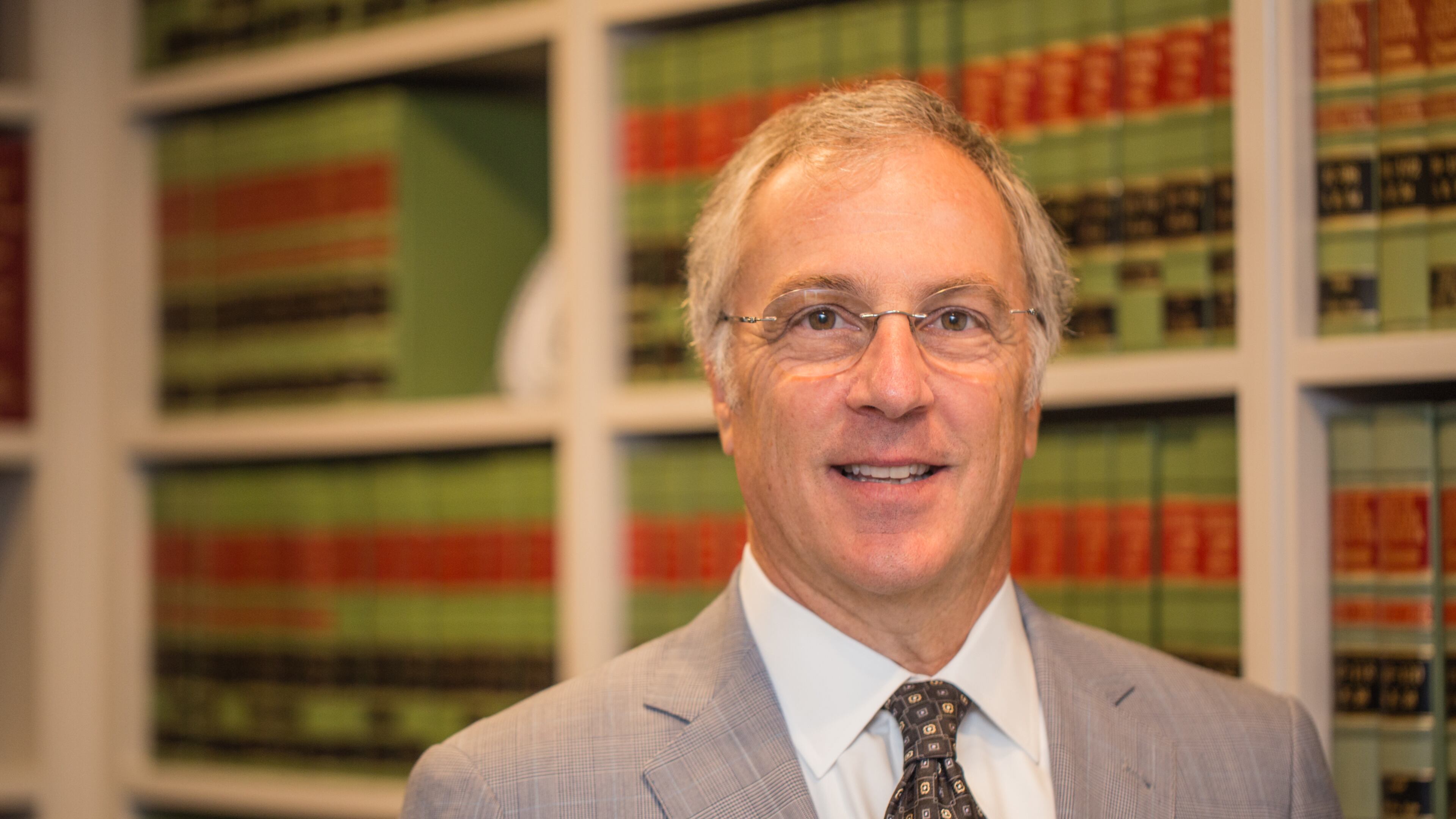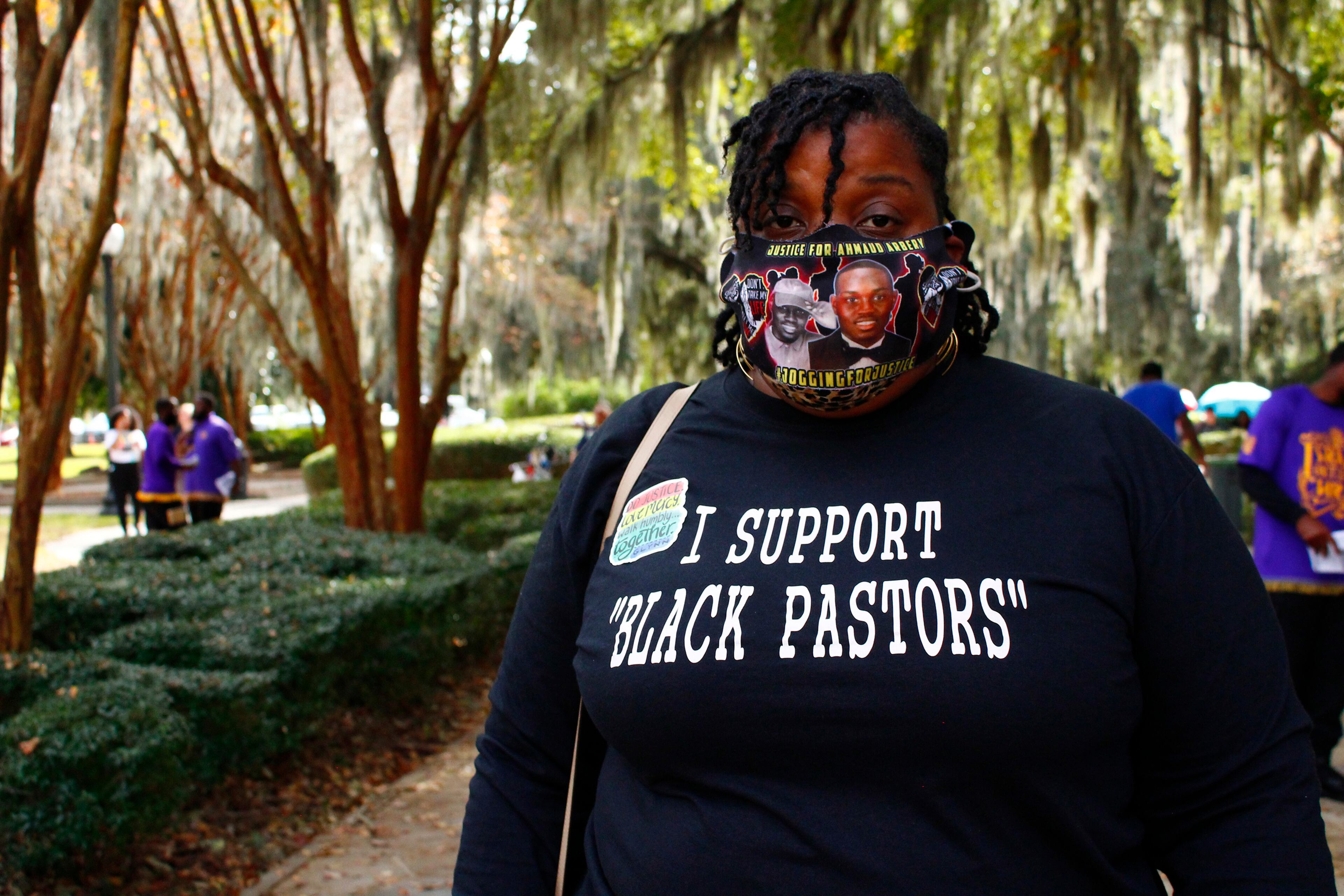Ahmaud Arbery case: defense and prosecuting attorneys reflect on murder trial

One of the most memorable moments in the state murder trial against the three men convicted of killing Ahmaud Arbery was when defense attorney Kevin Gough infamously said, “We don’t want any more Black pastors coming in here.”
Gough, who represented William “Roddie” Bryan, was referring to the occasions prominent Black civil rights icons such as the Revs. Jesse Jackson and Al Sharpton sat next to Arbery’s parents in court during the trial. Gough’s comments were swiftly condemned nationwide and led to hundreds of pastors gathering on the courthouse grounds a few days later.
“If we could have slapped a piece of duct tape on Kevin’s mouth at that moment, we would have,” said Bob Rubin, who represented Travis McMichael, the man who killed the unarmed, 25-year-old Arbery with shotgun blasts.
Rubin said Gough was not wrong in lodging the complaint because the sight of prominent pastors consoling Arbery’s family could hold sway with the jury. It was just the way Gough said it, Rubin said.
“It was extremely unfortunate and just created more problems than anything that was happening before that,” he said. “The art of lawyering is the art of speaking. I don’t know why he was not better at doing his job that way. It was frustrating.”

Rubin gave his candid remarks Wednesday during a panel discussion at the Georgia Bar, Media & Judiciary Conference organized by the Georgia First Amendment Foundation. Lead prosecutor Linda Dunikoski was also on the panel.
During the discussion, Rubin defended Laura Hogue, the defense attorney who represented Greg McMichael and who has been vilified for saying during closing arguments that Arbery had “long, dirty toenails” at the time he was killed — repeating testimony by the medical examiner.
Because the defense could not present evidence of Arbery’s mental illness, Hogue used those words to try to show Arbery was devolving and not the man “with the big smile, beautiful face photograph that the state used in the trial,” Rubin said.
As for Hogue, she is “the most progressive, loveliest, well-meaning person on the planet,” Rubin said.
She was not trying to appeal to bigoted jurors, he said. “We didn’t have racist jurors. None of us had any reason to believe that any of the jurors would be responsive to a dog whistle. ... She did not have any bad motive at all or racist motive in making that argument.”
Rubin said before he agreed to take the case, he first asked his wife and children for permission. “Even though they said no, I took it anyway and had to convince them later,” he said. “I thought it was going to be the experience of a lifetime and it was.”
Rubin added that he and co-counsel Jason Sheffield decided early on not to solicit legal fees from outside sources. “We didn’t want to get funds from groups that we didn’t personally agree with,” Rubin said.
Dunikoski noted that even though the McMichaels and Bryan were convicted this week of federal hate crimes, her prosecution team made a strategic decision not to present evidence of the defendants’ racist views toward Black people before the jury. In a murder case, she said, the state does not have to prove motive or premeditation.
The defense, she said, “was going to argue a bunch of really bad texts has nothing to do with what took place (the day Arbery was killed), and that’s not a bad argument. I didn’t need to prove it. So if I didn’t need to prove it, and disappointment often means reasonable doubt with the jury, there was no reason to disappoint the jury because I didn’t need to prove their motive in the murder.”
Dunikoski became emotional, her voice breaking, when she described her time with Arbery’s family after the verdict.
“We gave them their space and their time because it was very, very intense,” Dunikoski said. “Then we joined them in the jury assembly room to check in and there was lots of hugging and lots of crying.”

